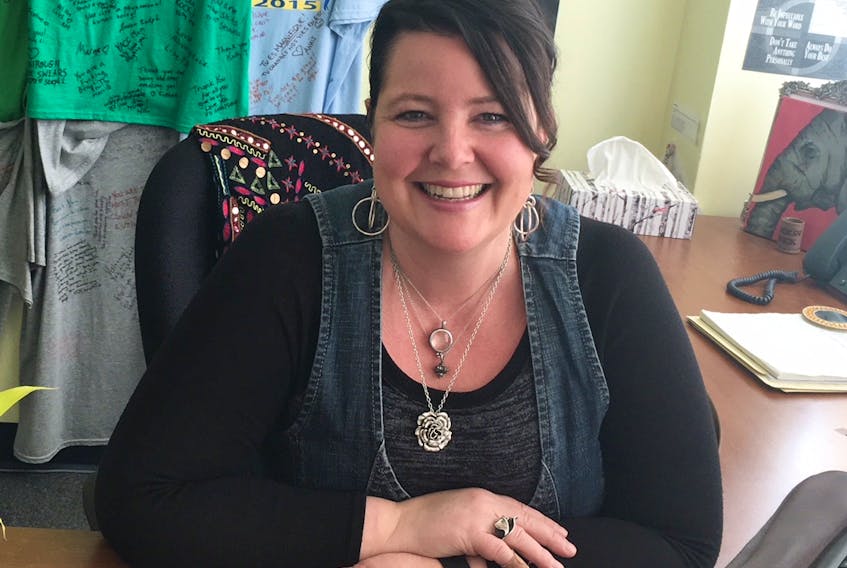For almost a decade, Karine Chalifour has been the backbone and a mentor for hundreds of young people in this province living with cancer.
As program director for Young Adults Cancer Canada in St. John’s, Chalifour provides a sympathetic ear to those wanting to talk about their struggle with the dreaded life-threatening disease, and gives advice and inspiration to those not knowing how to cope and a shoulder to cry on when things get too much for them.
But one day, things became too much for her.
Having seen and heard so much in her position, Chalifour found she was personally affected by others’ pain. Over time, not only did she find she was losing sleep and generally not feeling well, she was stressed and depressed.
“When you work with these people, it’s not just work. I have a true passion for what I do … so, I got a little overtaken by their stories,” said the 44-year-old, who pointed out she is around the same age as many of the people she provides supports for.
“I found I was taking their stories home with me.”
Chalifour realized she needed help herself.
“Knowing I had to (support) a lot of people, I had to do some personal work to make sure I was taking care of myself,” she said.
With therapy, exercise, meditation and a better balance of her personal and professional life, she is feeling stronger these days.
But she is quick to point out that many other caregivers — those caring for family or friends who can’t easily distance themselves from the situation — often feel the same overwhelming feelings without realizing the damage it is doing.
“Sometimes you just go. You’re on automatic pilot and just do what you have to, when suddenly you realize it’s taking a disproportionate part of your life,” Chalifour said.
The warning signs can be subtle, she said.
Besides interrupted and lack of sleep, caregivers often have aches and pains, and colds, and can become unable to digest certain foods. They can also be more irritable and experience feelings of sadness and isolation.
“Over time, if you don’t pay attention, your body will speak to you,” she said. “Your body is telling you to stop and pay attention.”
Chalifour, who is originally from Montreal, found solace by getting involved in the social network Stories for Caregivers, a non-profit social network that provides emotional support for millions of Canadian caregivers. Her story is featured on a film on the network’s website (https://www.storiesforcaregivers.com).
Chalifour said caregivers often have difficulty focusing on themselves, but she said it’s crucial.
She suggests beginning with taking a 15-minute walk alone or going to a movie. If it’s getting to be too much, checking with a health-care provider is a good idea, too.
“It’s difficult work, caring for others,” Chalifour said, “but it’s important to check in with yourself, too.”
Twitter: TelyRosie









